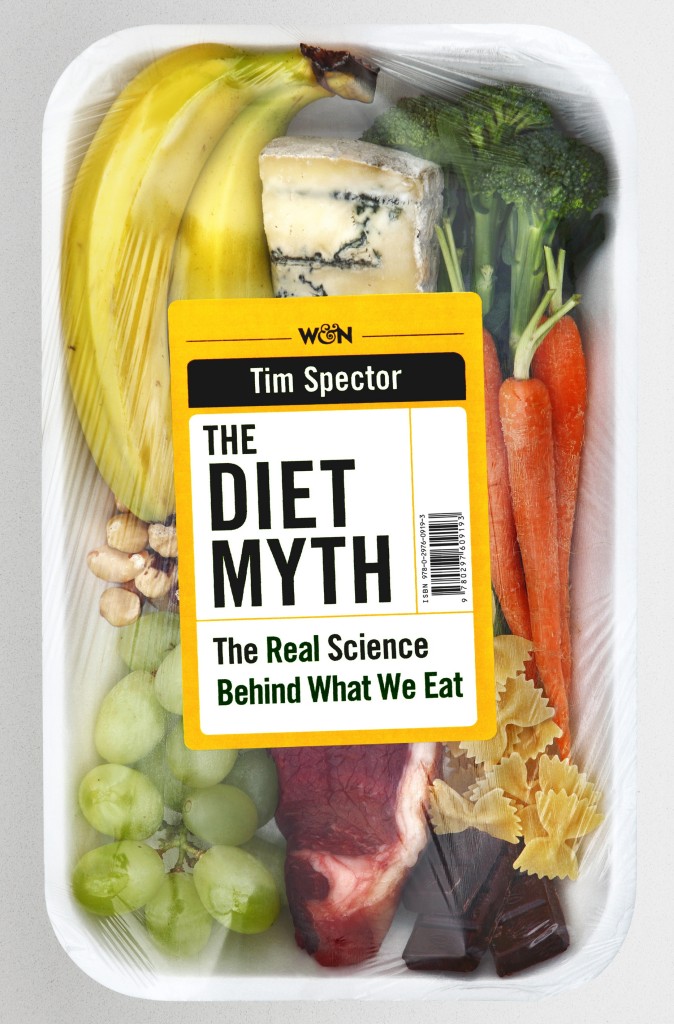Don’t blame the genes, or even the calories. Obesity could be down to microbes in the gut, says Professor Tim Spector, author of The Diet Myth. Ahead of his talk at CNM (College of Naturopathic Medicine), he explains why a modern processed diet and antibiotics are a major cause of obesity and diabetes.
Despite thousands of fad diet books, advice from experts and government guidelines, the global obesity crisis is getting worse. Dietary advice tells us to consume fewer calories, yet most diets fail in the long term.
We all know that the food we consume has a huge impact on our weight, but why can one person eat certain foods and gain weight, whilst another stays slim forever?
There is now plenty of evidence to show that we all respond differently to the same foods. But why? Genes provide only part of the answer. Thanks to recent scientific breakthroughs, the spotlight is now on the trillions of microbes, bacteria and fungi which reside in our guts, and whose job it is to digest our food and keep us alive, healthy, and not obese.
Microbes generally get bad publicity, but less than a tiny fraction of species are harmful to us and most are crucial to our health. Key nutrients and essential vitamins are extracted from our food only through our gut bacteria. Babies need microbes for development of their brains and immune systems. Microbes in our gut can affect our brain and mental health, and contribute to autism and depression and even the urge to eat more.
Critically for weight issues, not only are microbes essential to how we digest food, but they control the calories we absorb, helping to determine whether or not we are overweight. It is when our gut microbes are disrupted that they are a major cause of obesity and diabetes.
The living cells in our bodies consist of just 10 per cent human cells and 90 per cent microbe. Over millions of years we have evolved a close inter-dependence with microbes, yet in modern times this fine tuning and selection has gone wrong. Compared to our recent ancestors who lived outside cities, with rich and varied diets and without antibiotics, we have only a fraction of the diversity of species of microbes living in our guts. In fact, the diversity of microbes in our bodies is 30 per cent lower than it was just fifty years ago. We are only now starting to understand the long-lasting impact this has on all of us.
What has gone wrong?
Because of the way in which our food and our habits have changed over the last few decades, we are no longer exposed to the very microbes that have always been an invisible but essential part of the complex way in which our bodies function. In some cases, bad science and the dogma of focusing on low-fat and low-sugar calories have led to an increase in our waistlines. For example, sweeteners in diet fizzy drinks have adverse effects on our metabolism and microbes and can make us gain weight, just as foods advertised as low-fat are actually making us fatter. Man-made trans fats, now being phased out in the west, after many years of promotion as a healthy alternative to natural fats, actually mess with our microbes and the metabolism of fat. A diet of junk food can create the perfect obesity storm that we see today, dramatically reducing healthy gut microbes in only two days.
Medication can also disrupt microbes. The average twenty-year-old today will have already had eighteen courses of antibiotics and will have abnormal microbes. Plus, much of our food is now contaminated with low levels of antibiotics used in intensive farming, increasing the risk of obesity.
If we are to combat the epidemic of obesity and health problems we need a fundamental shift in how we view food, diets and the hidden microbial world inside our bodies.
The good news is that by focusing on a diverse and unprocessed diet we can increase the diversity of our microbes, and therefore of our health, happiness and lifespan. The success of the Mediterranean diet for instance is due largely to providing a diverse range of fertilisers for our microbes, from ultimate health foods like olive oil and nuts.
There is no such thing as a one-size-fits-all diet. Our guts and brains are so individual, and the way we react to foods so different and yet flexible. You won’t go far wrong if you treat your own microbes like you would treat your own garden. Give them plenty of fertiliser – prebiotics, fibre and nutrients. Plant new seeds regularly in the shape of probiotics and seasonal foods. Give the soil an occasional rest by fasting. Avoid poisoning your garden with preservatives, antiseptic mouthwashes, antibiotics, junk food and sugar, in order to maximize the diversity of the species of microbes that flourish, and so regain the correct balance enjoyed by our ancestors.
Many people, because of limited resources or education cannot make informed choices about changing their dietary habits. Governments need to start reversing the global sickness and obesity epidemic by reducing massive taxpayer subsidies on corn, soy and sugar, all of which go into processed foods, and make it worthwhile for farmers to grow cheaper fruits and vegetables. We also need more incentives to reduce the massive use of antibiotics, particularly on vulnerable children, and to reduce the number of C-sections and focus on normal deliveries where microbes can be passed from mother to baby.
Tim Spector is a Professor of Genetic 

Epidemiology at Kings College London, and has drawn on his pioneering research into microbes, genetics and diet to write his latest book, The Diet Myth. He will be speaking on the subject at a public seminar at CNM (College of Naturopathic Medicine) in London on 24th September 2015. To book visit www.naturopathy-uk.com

No comments yet.